
Anna Chan
陳嘉敏
Born: Morecambe, England
Raised: Morecambe, England
A person who I have watched from afar from social media granted me the opportunity to speak with her a while ago.
Anna Chan and I spoke about various topics, both personal and professional.
- Unlike most British Chinese immigrants, Anna has a British-born father
- Her mother was an immigrant who didn’t speak much English at first
- Anna Chan grew up with a Westernized father, and an immigrant mother who had different ways of handling things, including racist enconters
On the professional side, we talked about the state of being British Chinese and how the Asian Leadership Collective aims to uplift the British Chinese.
It’s a long interview, but I hope the subtitles help you navigate it. It’s worth reading, if only because the creator of Chinese Chippy Girl, Georgie Ma, said “Anna Chan is THE BEST!!”
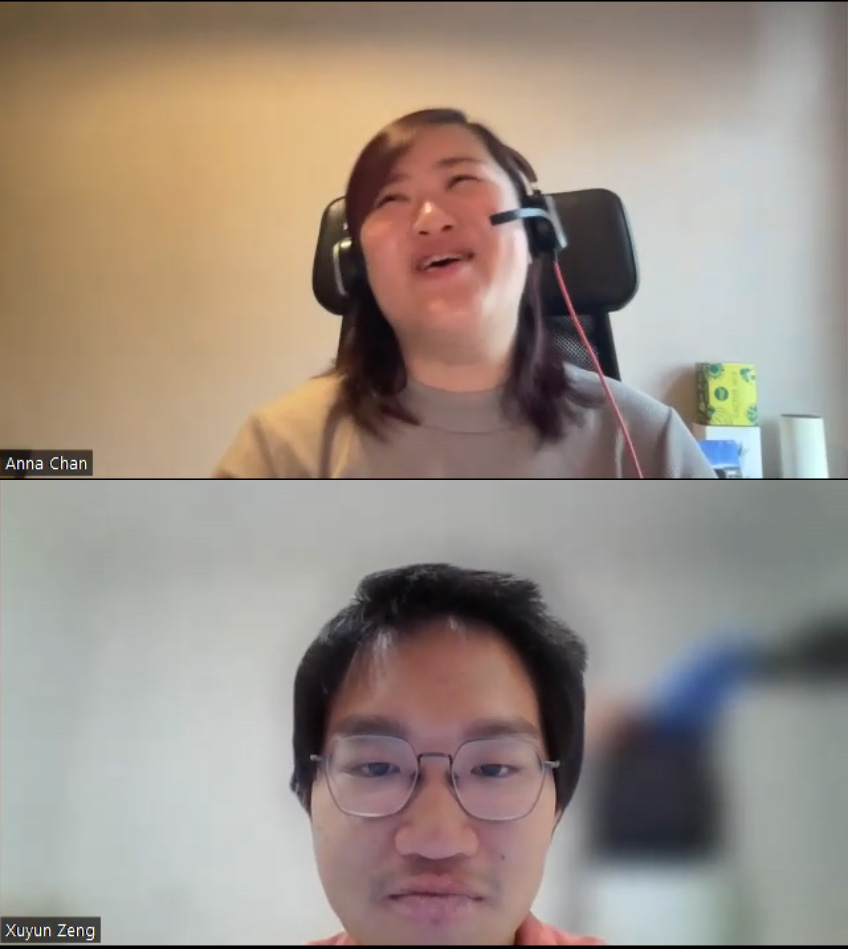
Anna Chan on Growing Up as a British Chinese Woman
XYZ (author): Can you tell me about your background as a British Chinese person?
Family Origins and Early Life
I am British Chinese, second generation. So my dad and his brothers and sisters, my aunties and uncles were all born in the North, even like Scotland. Actually, my dad and his brother were all born in Scotland, which I always think is quite funny because he doesn’t have an accent and because they moved around quite a lot.
Growing Up in Morecambe
I grew up above a Chinese takeaway in Morecambe and lived there until I went to university in Manchester. So not too far away but far away enough to kind of yeah. Kind of experience what it was like being a British Chinese woman who wanted to, you know, grow in her own career but become her own person as well.
Navigating Identity
I feel like there’s a lot of things that we’ll probably talk about as we go through. But there’s a lot of things I’ve had to navigate being British Chinese.
Anna Chan on the Unique British Chinese Experience Shaping Her Journey
XYZ: A good number of your relatives were born in Britain, which is, I would generally say, not the case for most British Chinese. They would have immigrant parents that were born and raised elsewhere.
Unique Family Dynamics in Morecambe
Yeah. I think actually that was one of a couple of other Chinese takeaway families that were in Morecambe or nearby and actually all their parents had yet to move over here from East Asia. But yeah, it is interesting actually. I think that’s probably something that has influenced my experience and I guess why I wanted to build something like Asian Leadership Collective, because I’ve had that experience.
British Born Father, Immigrant Mother From China
My dad is British born, he has certain views and values and spoke up where I’ve heard a lot of anecdotes that other people who don’t have that background wouldn’t speak up about certain things.
But then on my mom’s side, she actually moved over here from China to marry my dad. So I got, you know, two kinds of forces and influences in my life.
Anna Chan Recalls Childhood Experiences of Racism and Speaking Up
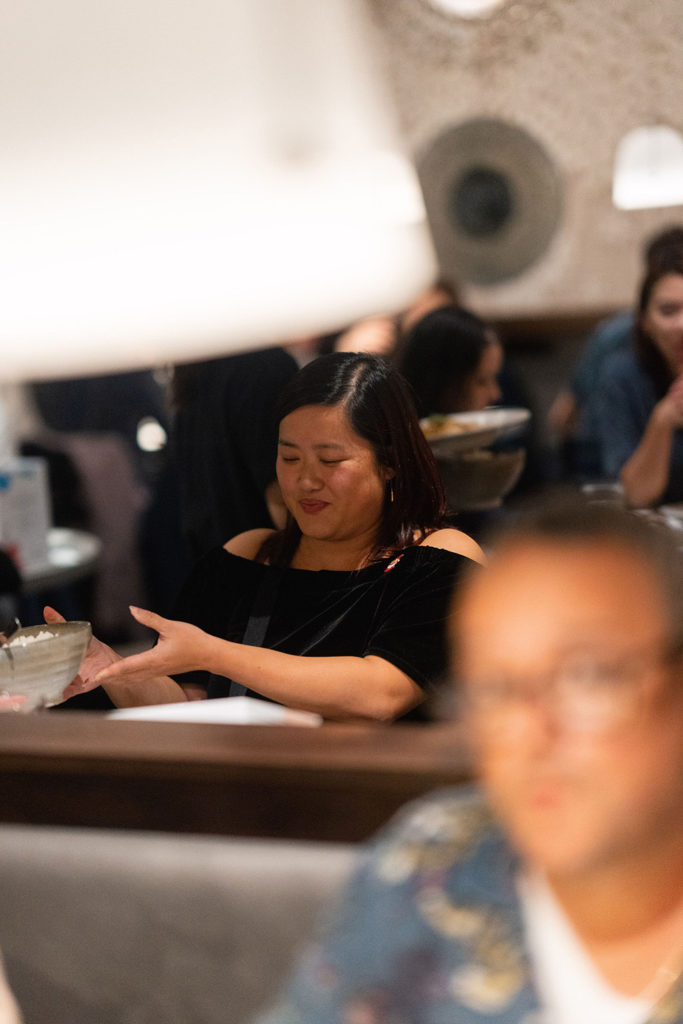
XYZ: I’m going to hazard a guess here that you’re saying that immigrant families won’t speak up when they see some injustice or something like that. But your father would because he’s born there and raised there. Is that what you’re telling me?
Dad Stood Up to Racism
Yeah. There was a big I think that’s one of my biggest memories. I think growing up in a seaside town that’s not very diverse. I know I’ve mentioned those other Chinese families, but they felt very isolated, even like everyone kept to themselves just because I think that’s just how it was. But one of my main memories is my dad shouting at somebody because they were shouting racist slurs at us in the street.
And you know, I was quite young still. I was like maybe five or six, like formative years, and then a grown person who was white shouting racist things at us just because we existed. My dad shouted at them telling them to go away in a polite sense. And actually my mom was there as well.
Mom Shied Away
But yeah, my mum would be like, “Oh don’t, don’t because of a slight, you know, just, you know, we need to just get on with it.” Whereas my dad said “No, you need to say something because yeah, you can’t always let them get away with it.”
Learning to Advocate for Justice
I feel that’s probably come from his own experience growing up in the same area, whereas it was just a very stark contrast to me and I think that’s something that I want and have tried to take on in terms of my values as well– always speaking up and trying to help other people that are being victimised or harassed as long as it’s safe obviously. Yeah.
The Tale of a 50-year-old Takeaway
XYZ: Did you work in a Chinese chippy or a takeout?
Yeah. I used to help out in the takeaway as well. I think it was just a given thing like there was one time I think when my grandma, my aunties, we all lived in the same house. We still have the takeaway as well. It’s nearly 50 years old. It’s really cool, actually.
But you know, at the time obviously as a teenager, I didn’t enjoy having to work and give up my free time. I gave up hanging out with my friends because I had to go work in the takeaway downstairs. So yeah, I did that.
Unique Dynamic in Her Takeaway Family Business
XYZ: One of the scenarios I hear a lot is when you have an immigrant family and the child does the front of the house like the sales and all that, and the cooking is done by the parents. Because the child is better at speaking English.
Is there anything different in your case since your father is an English-speaking person?
Unlike most China immigrant restaurants, Anna wasn’t front of house
I was more back in the kitchen helping out with all the food and packing the bags and things. I didn’t really have to translate. I think that’s probably something that I look back on and quite appreciate all that. My dad could speak English, but I think he’s had that experience [of being the translator for my grandparents]. A lot of my Chinese takeaway friends have had to be that translator at the doctor’s or at the bank. Whereas my dad? He already did that from his parents.
Evolving Family Roles in Business Operations
But anyway the dynamic of the takeaway. My dad. Yes. Used to be at the front of the house. Because he used to love talking to the customers a lot, my mum was like, “Can you go into the woks? You do the work and cook now.” And her English is really good now. She didn’t speak any English really when she came over.
Language Mastery and Shift in Family Responsibilities
And now it’s been 40-plus years and yeah, her English is very good because now she’s the one taking phone orders, she’s the one at the front of the house, and now my dad’s at the back where he can’t cause trouble. Haha.
Bridging Cultural Dynamics through Personal Experiences
XYZ: That’s a very interesting dynamic, actually. What’s it like having a British-Chinese father and an immigrant mother? Do you see any differences in that dynamic?
The Courage to Speak Out
Yeah, I think the biggest one is the “speaking out” piece. If we had to combat some really hot things like racism or people just being horrible, my dad is not afraid to just put them in that place. And my mum, I think she’s grown to be a bit like that.
Pandemic Experiences: A Catalyst for Change
You know, I think during the pandemic she was telling me because they were up in Morecambe and obviously there was a lot of Asian hate and a lot of horrible things happening. She was wearing a mask and people weren’t wearing masks at that point and she was wearing a mask in a supermarket. And the man turned around to her and said,”Why wear a mask”, like insinuating that she had COVID and things like that.
And she said, “You know, I can wear a mask. It’s up to me. It’s my choice.”
And I’m actually very proud that she shared that with me because I don’t think she would have said that when I was younger. So I feel like parts of speaking up and defending ourselves has been a big thing.
Family Values: Speaking Up and Sharing
And in my family, whereas I’ve heard, you know, other stories from other families where they didn’t really speak up, I’ve definitely seen parts of both, you know, growing up and then now, yeah, those values just being part of what I want to do and kind of share with others as well.
Navigating Dual Cultural Identities in Britain
XYZ: Up to 2019, has there been an evolution in how Britain saw its Chinese population?
The Invisibility of Chinese Culture in Britain
We were largely invisible, I would say. My background kind of talks to this as well – trying to conform to a culture that you didn’t fully understand, you know, that was being passed down in bits from like my mum. Because obviously she is Chinese in terms of growing up and being surrounded by Chinese people. Whereas my dad and I didn’t, they were parts of Chineseness coming from him, but because he was westernised already, you know, he would rather cook spaghetti. Whereas my mum was like rice, rice every day. She does all the Chinese cooking.
The Challenge of Conforming to Two Cultures
So it was very hard I think for the British Chinese experience to try and conform to a culture that’s being passed down in that way, but then trying to also fit into the westernised perspective. So like growing up, going to school, people don’t eat the same things as we did before the shop opened up. So we’d sit down and have rice and like Chinese dishes. Just small things like that. You take your shoes off, but when you go upstairs. People are just like, “What, what is this?” So it was quite an odd experience for me, I think trying to navigate that. So I guess that’s from a Western point of view.
Interaction with Other Immigrants
But then also when you’re interacting with other people who have come to the UK even to study or work from maybe China or East Asia, Southeast Asia. Yeah, being seen as “You’re not Chinese enough either as well.” And I’ve had that used against me as well. People trying to kind of put down the Britishness or the Englishness and saying, you know, I went to karaoke, for example, and they were like, “Oh, British Born Chinese, you’ll want to drink beer.” And that was supposed to make me feel bad? And I was like, “No, I quite like beer” because they were drinking hard liquor and spirits.
Merging British and Chinese Identities as a Strength
But I kind of see my Britishness and my Chineseness as a strength. To be able to bring both together in terms of the best values of both and then being able to call out when one or the other is not the best as well. And yeah, I think that’s where the strength kind of lies. Being able to see both sides and then make those values your own in terms of, you know, hardworking or wanting to do something. And yeah, like Asian Leadership Collective to speak up about leadership and combat some of the stereotypes that we face.
Empowering East and Southeast Asian Leadership in Britain through Personal and Collective Journeys
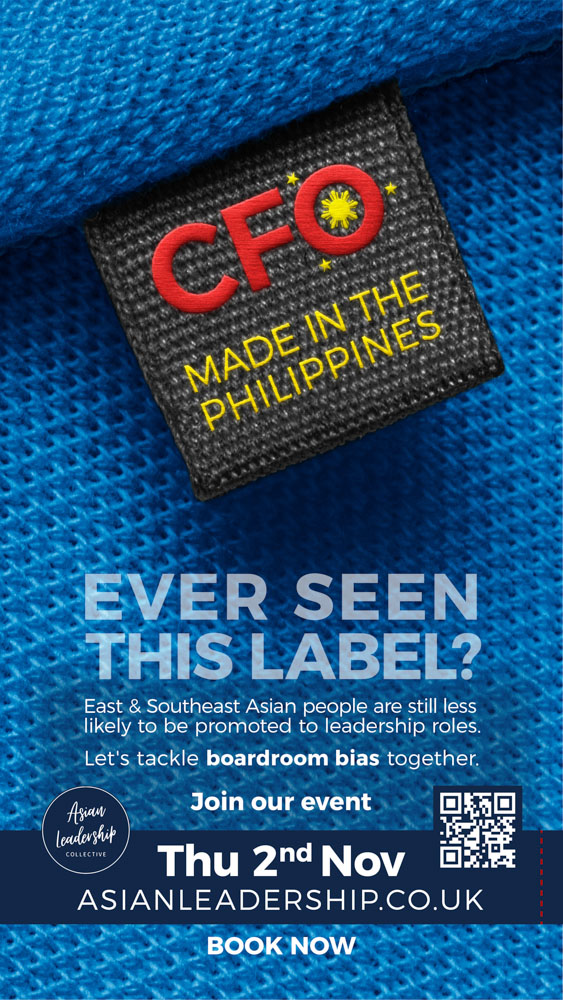
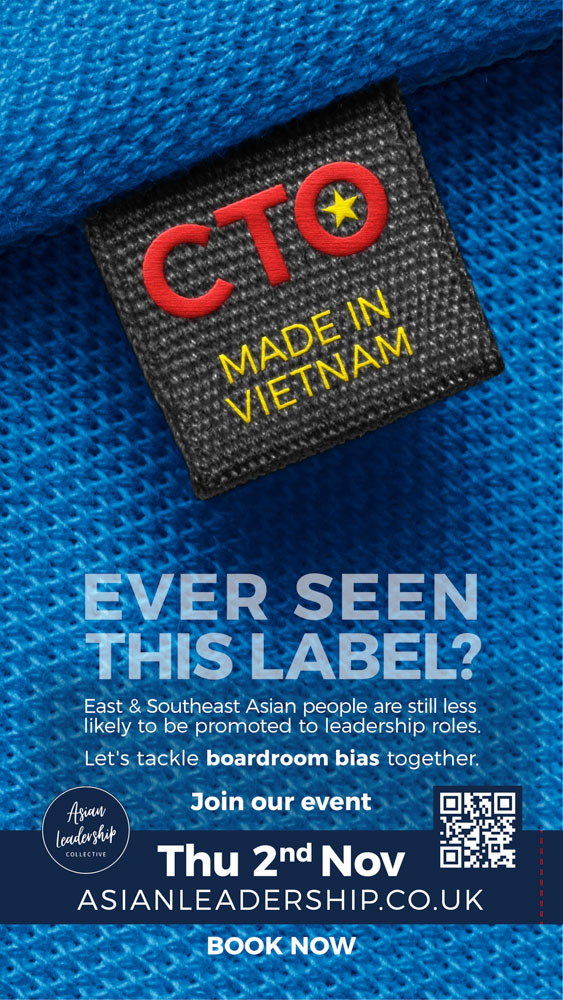
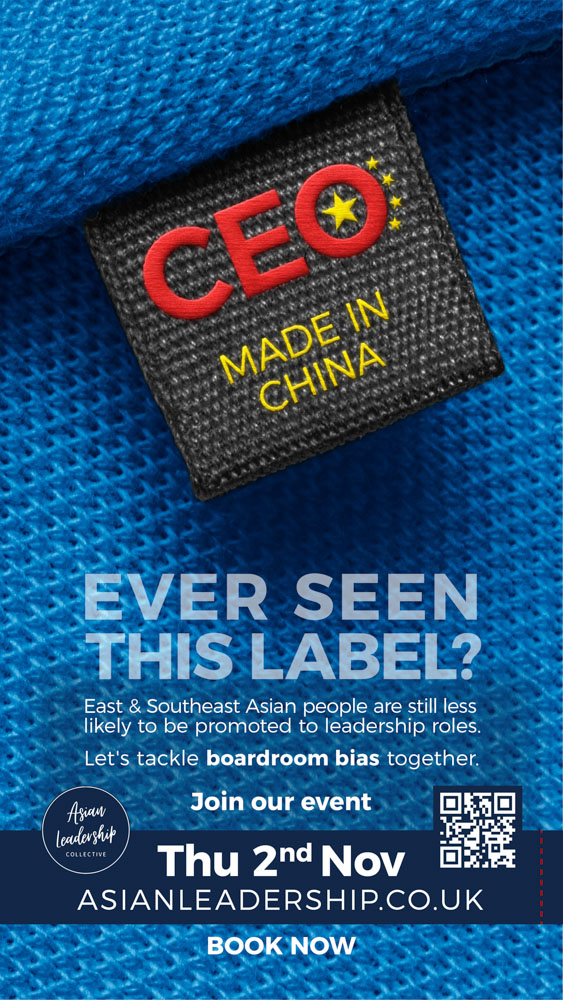
XYZ: I would like to talk about the Asian Leadership Collective. When did it start?
Pandemic Inspired Beginnings
This started during the pandemic itself. Yeah. Yeah. So I think it was always in the lead up to the pandemic as well, in a way, because I had seen someone else who is Vietnamese and I’ve been working with him actually during my day job. So I’ve always been in a tech advertising kind of background, so we’d work together.
Finding Inspiration from Others
And then he told me, I read that he started his own charity in Vietnam and he was training to be a coach. He was training to be a keynote speaker. He was a customer, and used to work with him. But then to see him step up and seemingly out of his comfort zone as well. And I was like, “Oh, that’s really cool that he’s done all this stuff,” and just really looked up to him in terms of that as well, because when I was working with him, he never talked about this kind of stuff.
Initial Spark Towards Empowering Women Leaders
And then there was the person that asked me for my advice on a project that they want to start. And it was all about empowering women leaders. And I had some really good ideas about the marketing and for some reason projects don’t always land or take off. And I was kind of stuck on these ideas thinking, why don’t I just do it? Why am I waiting for someone else to create something?
Overcoming Cultural Expectations
Even though it was very outside of my comfort zone, I’ve never been taught or told, I guess in my environment to aim for something like this, like be your own boss or, you know, champion other people and values. Growing up, it’s always been to be safe, be smart, be healthy and so like my parents were saying, “You don’t need to take on the takeaway stuff.”
Challenging Traditional Career Paths
And, you know, that ends with like my parents. Get a desk job, but I didn’t have to be a doctor or a lawyer or an accountant because I wasn’t very good at those things. I did actually want to go into the kitchen. I wanted to be a pastry chef, kind of creative. And they were like, “Why would you want to be in the kitchen?”
Empowering East and Southeast Asian Leaders in Britain Amid Pandemic Prejudices
XYZ: You started the Asian Leadership Collective during the pandemic. Was there anything that led to you starting the Asian Leadership Collective?
Pandemic-Induced Free Time and Observations
I think I was always yeah, I was always thinking. I guess the anecdote with those two people that I was seeing outside of my community, well, kind of in my network were doing things and I was like, Well, why could I do it? And I think because the pandemic happened, I had a lot more free time. We weren’t going outside.
Hiding Cultural Identity Amid Scapegoating
And because I was seeing a lot of my friends wanting to hide their Chineseness or aspects of looking East and Southeast Asian because, you know, we were being scapegoated as a community during the pandemic for a lot of these horrible things. And yeah, a lot of hate crime happening as well and harassment. And so I think that kind of pushed me to be like, okay, we’re being seen in a certain way.
Combating Stereotypes Through Leadership Representation
I want to combat those stereotypes. I think it was also I think the reason why I went down the leadership route is because in my career, not a lot of people look like me in senior positions and also when I went to a diversity inclusion panel, I still couldn’t see any Asian people and I was like, “Where is everybody?” I know we’re here, so why aren’t we being asked to be part of these inclusive conversations? Because then that in itself is not inclusive. So yeah, I think that a lot of that has amalgamated into Asian Leadership Collective.
Pandemic’s Overt Harm and Bursting Bubbles
But I think the pandemic was very overt in terms of overt harm to the community. Stereotyping, you know… and I knew that was always happening anyway. I think it shocked a lot of people that this was happening in this day and age. And I was like, “Oh, I grew up with this.” You know, this is a bubble that’s always been there. Unfortunately, it has burst because of the pandemic. And I was like, this is why we went down the leadership piece, because I think we need the day to day reminder that East, Southeast Asian people can lead.
Bridging Inclusivity and Showcasing East and Southeast Asian Leadership Potential
We bring a lot to the table in terms of values and, you know, and our skills, what we can achieve as well. But not just that. It’s just how can you build an inclusive, you know, board of people or a company without actually listening and really encouraging lots of different types of people? And I think a lot of East and Southeast Asian people are missed from those conversations as well.
Bridging Cultural Values to Reshape Leadership Norms in the UK
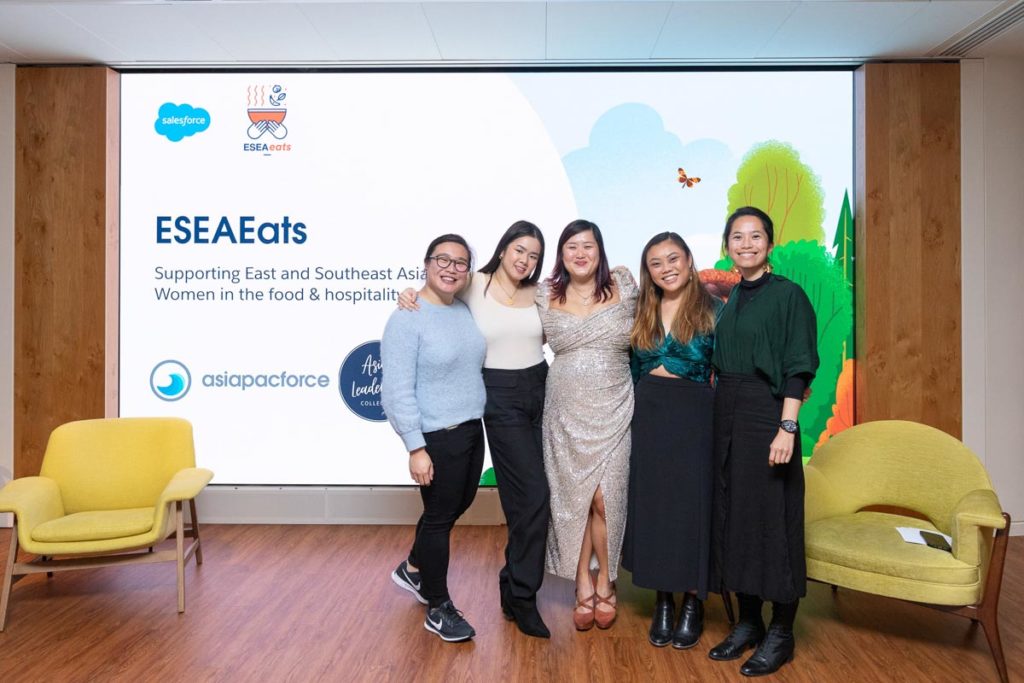
XYZ: You mentioned that Asian people have some values. What do you think Asian people have to offer in terms of values?
Challenging Western Norms
I think when I talk about when I mention that I’m thinking more in terms of actually it’s challenging in the West and particularly in the UK because this is where I am. I used to work for a US company as well, so I used to see there’s a lot of synergies in terms of the phenomena that we see within these communities.
Community Cohesion Amidst Adversity
But I think in the US, it’s different because there’s a larger volume of people that have come together and more historically over the years, whereas I think during the pandemic that’s the first time we’ve seen so many people, disparate people in the UK, in the East and Southeast Asian communities come together and start talking about some of these conversations.
Transition from Survival to Unpacking Stereotypes
Now that we’re a few generations over, I feel like we have the privilege and also the burden to start unpicking some of these stereotypes. And therefore, that’s where the values come in. I feel like it’s unpacking what a leader looks like in the UK because I think as a Chinese person I feel like we’re stereotyped to be very quiet, subservient. We don’t speak up enough, but actually I like to process first and then talk.
Redefining Leadership Through Cultural Fusion
So is that combating of what are the values that maybe a UK centric Westernised company values as leadership versus, you know, the skills that we have as from a culture that has relied on, you know, listening and then actions. And to that point, I think there’s a few things that I guess in my experience, things like not speaking up and just expecting that your manager will be able to give you a promotion just because you got work done, that doesn’t work either. So I think there is a bit of a flipside, but I think it takes both a Western perspective and the Chinese perspective to come together and redefine what that leadership style looks like. Because I think, yeah, there are a lot of things that we can bring to make a successful kind of project or business as well.
Overcoming Initial Hurdles and Challenging Stereotypes in Establishing an Empowerment Initiative
XYZ: Can I ask you about the logistics when you started this during the pandemic? It was a blank slate. I don’t know if it were, but I imagine it was a blank slate. You had no Instagram, you had no connections. How did you get it off the ground? Assuming someone wanted to do something like this, how does one get off the ground based on your experience?
Securing a Mentor for Guidance
I got a mentor straight away. I was like, I haven’t done this before. I’m going to speak to someone who has done this before. I think it’s a massive thing as well, that is. East and Southeast Asian people don’t necessarily have access to I think this is. Have you heard of the model minority myth?
Unveiling the Model Minority Myth
Yeah. So on the face of it, East, Southeast Asian people do really well. They’ve got really great university degrees because they study hard and they’ve got professional jobs where they get paid a good salary. But people just assume that Chinese people and Southeast Asian people don’t need support or resources when actually we do need those resources.
The Barrier of Seeking Help
Yeah. And I think that’s coupled with “you don’t ask for help like that.” I’ve never been taught to ask for help, reach out and say that you’re struggling with something and that goes down with the whole,”just keep your head down. If you work really hard at something, it will just happen”.
Embracing an Agile Approach
And I kind of knew that that wasn’t the way to go with Asian Leadership Collective. I wanted to be more agile than that and actually speak to people that have done this before.
Some have failed before as well. I think you learn a lot more from failure than you do from being successful and just trying loads of different things as well.
Bridging Cultural Understanding through Consultancy and Community Initiatives
XYZ: What does the Asian Leadership Collective do at the ground level?
Consultancy Workshops
Yeah. So there’s two pillars that I see Asian Leadership Collective working on at the minute. One is around consultancy workshops and that’s going to companies and yeah, giving a talk around an introduction to East and Southeast Asian people in the UK because I think the history of the movement of people coming to the UK hasn’t been talked.
And we’ve done that recently as part of Heritage Month. That was in a media advertising company, so I felt that it was amazing to go back to my roots in terms of the career path I chose and actually speaking about some of the things that weren’t necessarily there when I was growing up in my career. So, combating that being invisible piece.
Food Industry Collaboration
It also included a lot of food as well. So the most recent consultancy that we did in the food industry was with Waitrose (a grocery store). So we helped in terms of their new Japanese range. I think the most recent stats that the PR team has shared on their socials is I think the sales were up by 120% from the last week.
Community Building and Events
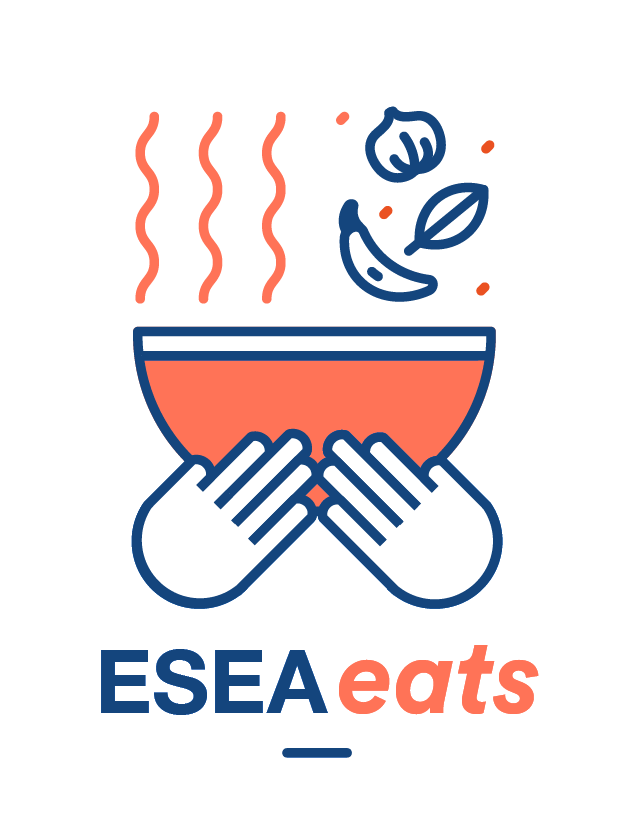
And on the flip side is around community, so community building and events. So that has largely existed around the hashtag #ESEAeats that I started with Georgie during the pandemic and I think Georgie has probably spoken about this as well. We didn’t expect that so many people would be using the hashtag.
Media Industry Discussion on Inclusion
And so, you know, this year we’re going to have this talk about the media industry. We have James Wong, who is a famous botanist and broadcaster. He’s going to be telling teams up with the story around why it’s important to have inclusion and representation in the right way in terms of media and storytelling.
Understanding Cross-cultural Experiences in Professional Environments
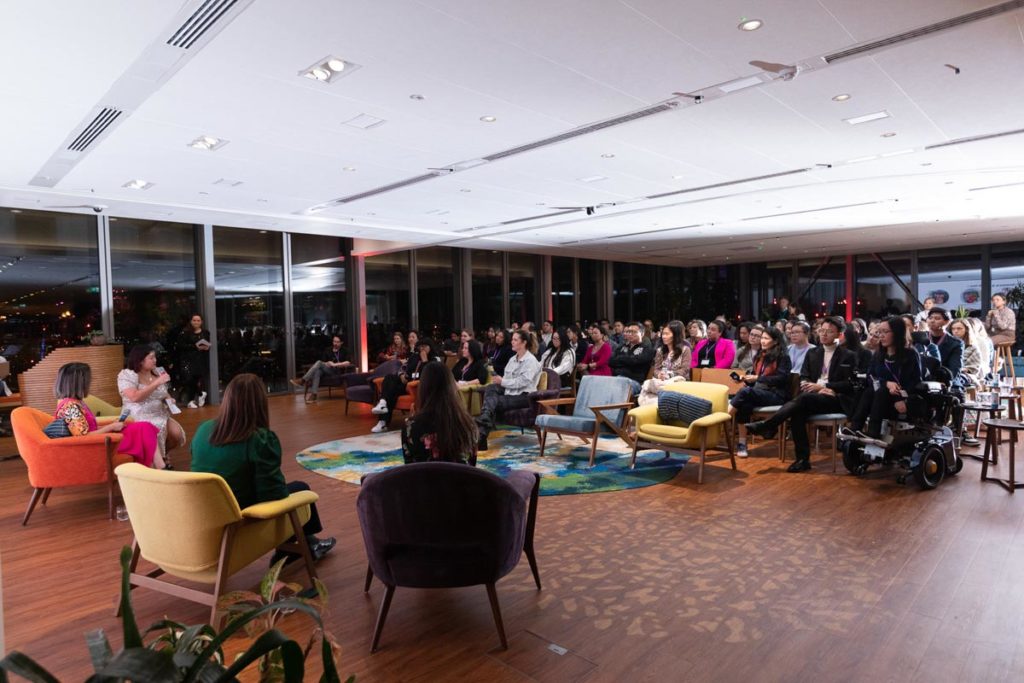
XYZ: When you were working with Americans and you said there’s a lot of synergy, do you see any differences between the experiences of Asian Americans and British Chinese?
American Value System and Vocalization of Challenges
Yeah, I think it might be because of the American value system and it’s very overt in terms of already knowing around the hardships, the challenges and being very vocal about what those are. But I think they still are met with the same challenges in terms of other communities, of the people not really understanding what that means.
Language Around Microaggressions and Stereotyping
But for me, they already had the language in terms of, you know, microaggressions or aggressions at work, stereotyping people, gaslighting their experiences at work. I feel like I’ve had to build that over the last couple of years.
Discovery and Healing Through Shared Experiences
I don’t really know how to say what it is, but yeah, discovering that together has been quite a healing thing I think for British, Chinese, British East, Southeast Asian people. So yeah, that’s I think one of the main differences is that yeah, they already had the language to talk about some of their challenges and struggles.
Community Building and Progression of the Movement
And I think in terms of them, there are just more people in the US. Which is why I think it forces the movement along a lot more in the US because there’s just more people talking about the same thing. Whereas in the UK we don’t have the volume of people, we don’t necessarily have the language. So I think it’s still very early days for how the East and Southeast Asian community works together. But I think it’ll just come with time as we kind of build community together.
Addressing Asian Representation Discrepancies in the UK
XYZ: I think we are coming to the end of the interview. But I do have one very important question. First of all, I must ask you about “ESEA” (East and Southeast Asian). The reason why you have to be so specific – is it because “Asian” in the United Kingdom means “South Asian”?
ESEA Representation in Media
Yes. That’s the reason why I called Asian Leadership Collective, because I wanted to take that back for East and Southeast Asian people because, yes, we’re not a monolith, but we are part of the Asian experience. So for example, in the UK, the BBC Radio Network, there is a Asian station, I think, or radio station, but it’s all South Asian and I’m a bit like it’s great that they have this platform.but that doesn’t sit right with me that there’s no East Southeast Asian representation. Please call it something else.
Misrepresentation in Data Collection
And it’s the same with data. When we start looking into how we can change this in the future, right? In terms of making sure that East, Southeast Asian people are being represented in leadership, in the workplace, what happens with the census collecting data is that “Asian” is still lots of different people, like, South Asian, East, Southeast Asian, all bracketed together.
Skewed Perception from Data Aggregation
So it skews the numbers obviously because like how many countries and backgrounds are included in Asia? So it’s obviously going to look like we’re doing very well. So we need to dig deeper into that as well to make sure that we are being included, because I guess that plays into the whole being invisible in terms of that experience, because “Asian” does mean South Asian a lot of the time in the UK.
Conclusion
The Asian Leadership Collective led me to wonder if there are parallels between the Chinese-Jamaican organizations that Dalton Yap spoke to me about.
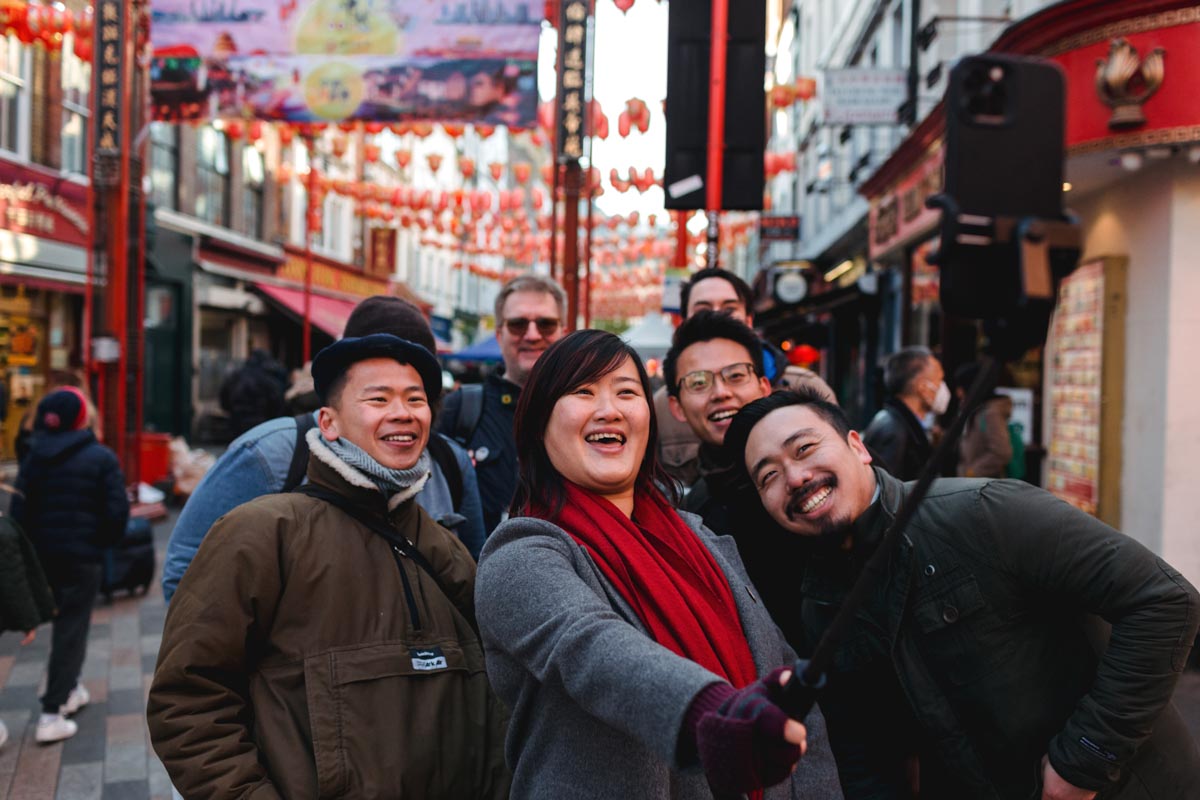
Leave a Reply